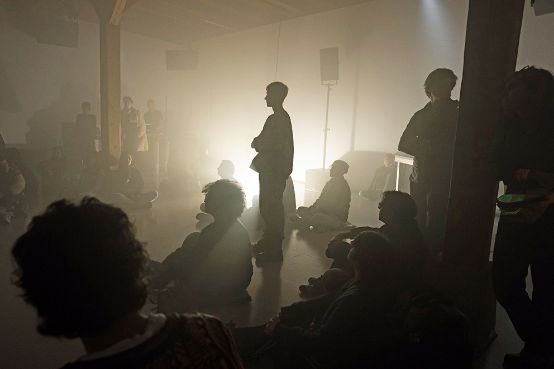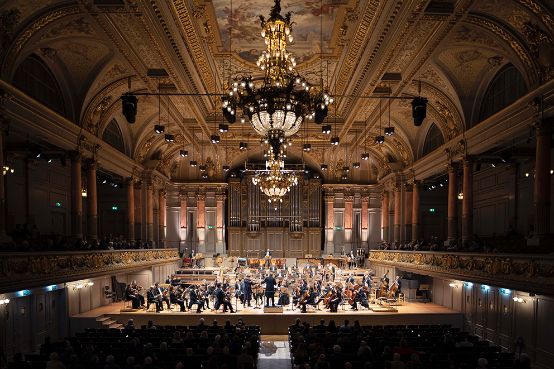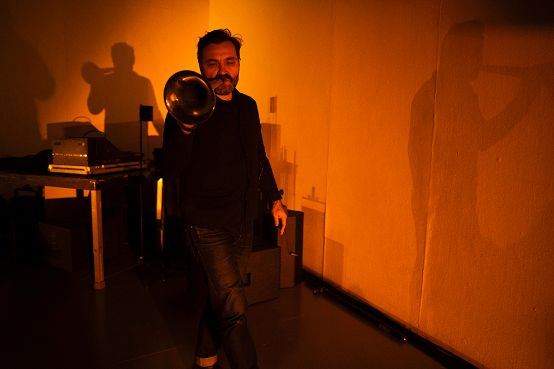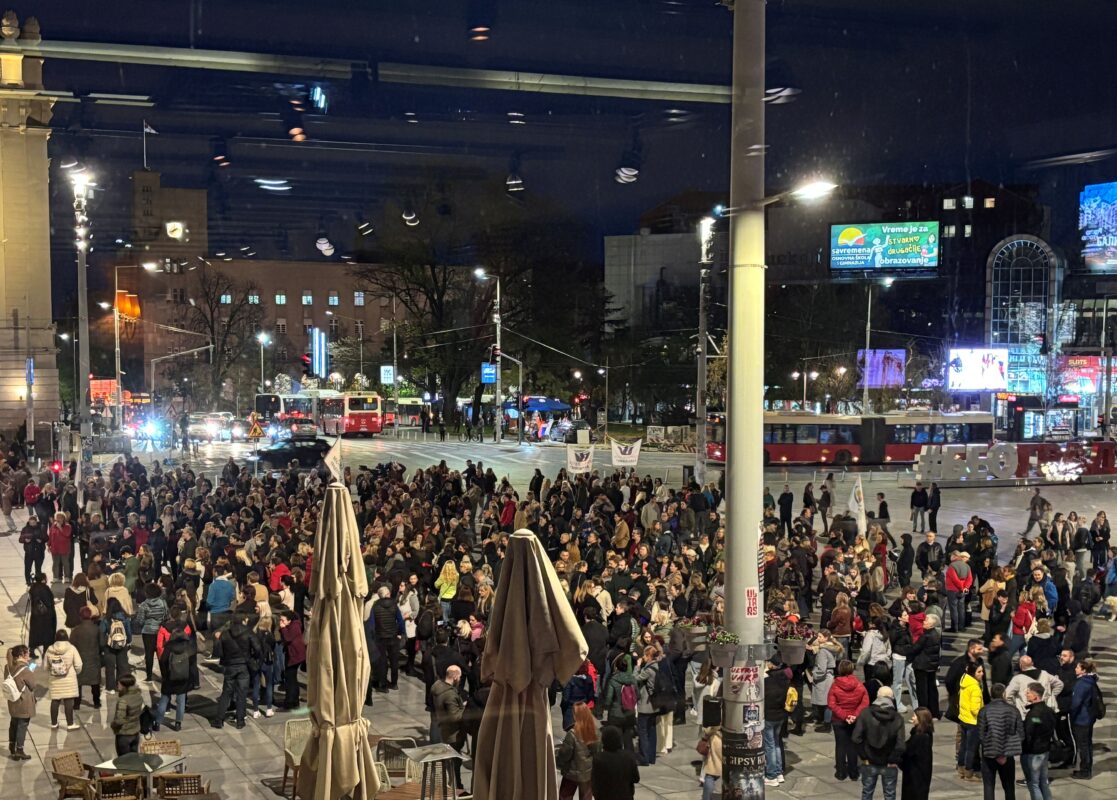Experimentation as a program
Sonic Matter, the young Zurich festival for experimental music, took place for the second time. Under the motto "Rise", there were around 20 events in various formats. The continuation of the festival is still open.

The audience has to make do with a seat on the floor in the middle of the room. The stage and the chairs along the walls are reserved for the performers. These: a dozen pupils from the Im Lee Winterthur cantonal school. They snap their fingers and tap their thighs. One group tries its hand at DJing and mixes the music it has previously recorded itself. Another group uses their computers to make everyday sounds such as rain, a babble of voices, bells or car noise. The presentation at Theaterhaus Gessnerallee is the result of an educational project. In several workshops under the direction of sound researcher Iva Sanjek and percussionist Roman Bruderer, the students developed a program that is all about hearing. The performance is obviously fun for the participants - nobody wants to offer great art for eternity here.
From Zurich to Uganda
It is significant that the Sonic Matter music festival also includes such an event. Not only compositions, but all kinds of sound sources are understood as "sounding matter". The completed work is contrasted with trial and error and experimentation. Failure is also a possibility. In this broadly defined concept of new music, Sonic Matter differs significantly from its predecessor festival, the Tage für Neue Musik Zürich, which was essentially dedicated to composed music. While the "Tage" were organized by the city of Zurich, Sonic Matter is now an independent sponsorship. The artistic direction is the responsibility of composer and music teacher Katharina Rosenberger and cultural manager and journalist Lisa Nolte.
The motto of the second edition of the festival at the beginning of December was "Rise". Rosenberger understands the term not only in the sense of "rising" or "growing", but also as "rebelling" or "resisting". In addition to the musical meaning, the social significance also comes into focus for her. In this way, the motto was perfectly combined with the geographical focus on sub-Saharan Africa. Symptomatic of this was the collaboration with the Ugandan festival Nyege Nyege, with artists who are coming to terms with the post-colonial traces in their society.
From concert to listening lounge
Very different formats were presented in the Rote Fabrik, the Tonhalle, the Gessnerallee, the Walcheturm art space and outdoors, ranging from traditional concerts to sound performances and listening lounges. The concert by the Tonhalle Orchestra under the direction of composer and conductor Peter Ruzicka was of a high artistic standard. The world premiere of his Concerto for Viola and Orchestra, performed with dedication by violist Nils Mönckemeyer, set a strong accent. The work revolves around the poet Paul Celan and his resistance to Nazi terror. The performance of George Enescu's Fourth Symphony, which Ruzicka has repeatedly championed, was also a rarity. In Pascal Bentoiu's orchestration, however, the work comes across as a monstrous structure that is difficult to digest.

The final performance in the Walcheturm was entirely experimental. The installation Limbo and the performance Ring both have a spiritual-religious background and triggered strong associations in the audience. With Ring by composer and voice artist Antoine Läng and his artist collective was another world premiere at the festival. It uses megaphones, portable loudspeakers, electronics, vocal fragments and instrumental splinters to acoustically translate the phenomenon of Alpine blessing in the mountains. Different echo effects resulted not least from the fact that the performance was performed both indoors in the hall and outdoors in the Zeughaus courtyard. It was a shame that the original idea of allowing the audience to move freely between indoors and outdoors was dropped at the last moment.

What's next for Sonic Matter? The festival is currently in a three-year pilot phase, which is being subsidized by the city of Zurich with a total of 850,000 francs. During this time, an external company is carrying out an evaluation. The outcome of this evaluation will determine whether the city will continue to pay subsidies and whether the festival can therefore continue. In terms of enriching the new music scene (not only in Zurich), this would be very welcome.








